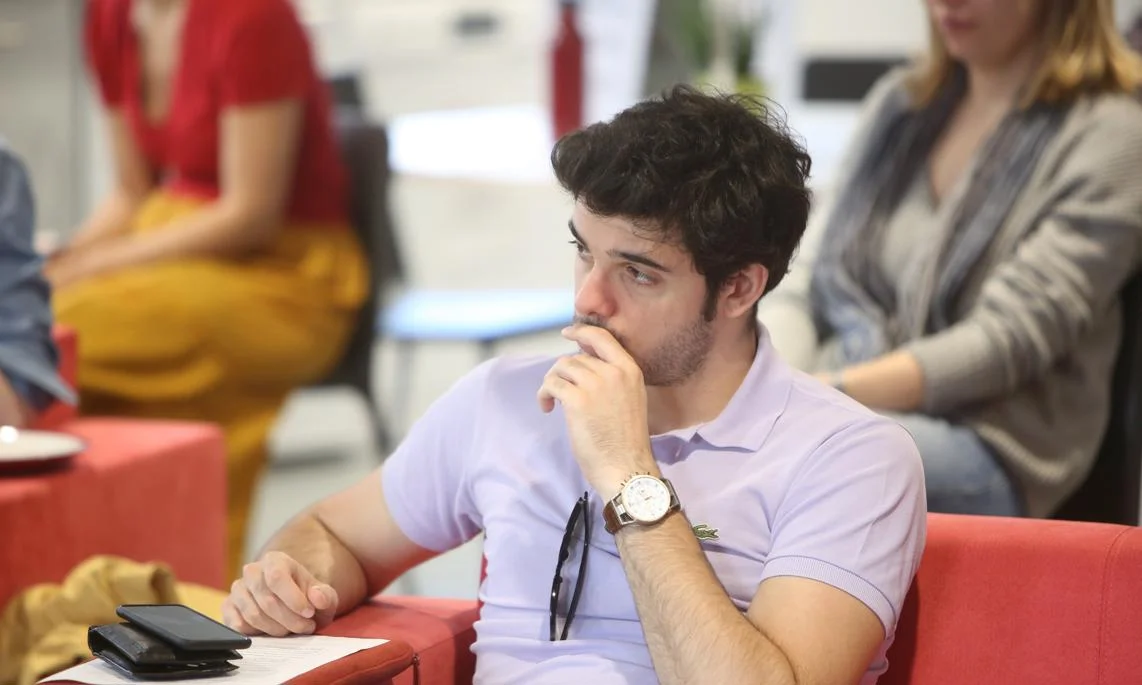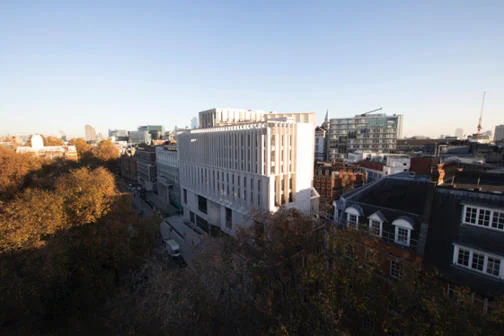Overview
Introduction
Gain the skills to conduct pioneering research on managerial economics on this rigorous, interdisciplinary training programme.
The programme
You’ll study a range of topics, from organisational economics to personnel economics, entrepreneurship and political economy. The curriculum includes comprehensive methodological training, with an opportunity to specialise in your chosen field. We have expertise in entrepreneurship, insurance markets, supply chains, firms and trade in developing countries, and behavioural economics.
You’ll begin on the master of research degree and move on to the PhD (subject to satisfactory progress). Drawing on our interdisciplinary strengths, you’ll have the chance to complete work that makes an original contribution to the field.
Students can apply for LSE and departmental financial support, including a full tuition award and a five-year annual stipend granted each year to at least one exceptional candidate applying to this programme. Find out more below under "Scholarships, studentships and other funding".
Research environment
LSE is a globally renowned university ranked sixth in the world for social sciences and management. As a research-led department, we have a vibrant community of academics and students pursuing research in varied fields of management. We offer a limited number of studentships on this programme.
We're also ranked second in the UK by percentage of overall four and three stars in the most recent Research Excellence Framework (REF 2021).
Preliminary readings
- Alfaro-Urena, A., Manelici, I., & Vasquez, J. P. (2022). The effects of joining multinational supply chains: New evidence from firm-to-firm linkages. The Quarterly Journal of Economics, 137(3), 1495-1552.
- Alonso, R., Dessein, W., & Matouschek, N. (2008). When does coordination require centralization?. American Economic Review, 98(1), 145-179.
- Battiston, D., Blanes i Vidal, J., & Kirchmaier, T. (2021). Face-to-face communication in organizations. The Review of Economic Studies, 88(2), 574-609.
- Beraja, M., Kao, A., Yang, D. Y., & Yuchtman, N. (2023). AI-tocracy. The Quarterly Journal of Economics, 138(3), 1349-1402.
- Bursztyn, L., Fiorin, S., Gottlieb, D., & Kanz, M. (2019). Moral incentives in credit card debt repayment: Evidence from a field experiment. Journal of Political Economy, 127(4), 1641-1683.
- Levine, R., & Rubinstein, Y. (2017). Smart and illicit: who becomes an entrepreneur and do they earn more?. The Quarterly Journal of Economics, 132(2), 963-1018.
- Macchiavello, R., & Morjaria, A. (2015). The value of relationships: evidence from a supply shock to Kenyan rose exports. American Economic Review, 105(9), 2911-2945.
- Madarász, K. (2012). Information projection: Model and applications. The Review of Economic Studies, 79(3), 961-985.
- Paravisini, D., Rappoport, V., Schnabl, P., & Wolfenzon, D. (2015). Dissecting the effect of credit supply on trade: Evidence from matched credit-export data. The review of economic studies, 82(1), 333-359.
- Stanton, C. T., & Thomas, C. (2016). Landing the first job: The value of intermediaries in online hiring. The Review of Economic Studies, 83(2), 810-854.
Entry requirements
Upper second class honours (2:1) degree in any discipline or the equivalent, with evidence of preparation in economics and a strong mathematics background.
Find out the GRE requirements for this programme below under "Additional tests".
Please select your country from the dropdown list below to find out the entry requirements that apply to you.
Overseas
Additional tests
GRE requirement
The GRE is required for all applicants. We don't require a specific GRE overall score but the test gives us an indication of your aptitude for our programmes.
A strong GRE score will count in your favour, but other information, such as your research interests, your examination results, previous qualifications and references are central to our overall evaluation of your application. We recognise that if your first language isn't English, the verbal test will be more demanding and we view your score on that basis.
Your score should be less than five years old on 1 October 2026 and must show full and percentile scores for all three sections.
Find out more about GRE including requirements and submission of test scores, and LSE’s institution codes.
Exemption requests are unlikely to be approved and are at the discretion of the Department of Management.
English language requirements
The English language requirement for this programme is Higher. Read more about our English language requirements.
Competition for places at LSE is strong. So, even if you meet the minimum entry requirements, this doesn't guarantee you an offer of a place.
However, please don’t feel deterred from applying – we want to hear from all suitably qualified students. Think carefully about how you can put together the strongest possible application to help you stand out.
Programme content
The MRes PhD in Economics and Management a rigorous graduate training programme designed to stimulate critical thinking and provide you with the training to conduct research to advance the frontier of applied Economics in the field of Managerial Economics, broadly defined to include topics from organisational economics to personnel economics, to entrepreneurship, to political economy.
It's a specialised programme closely aligned with the PhD in Economics (and including the same core sequence of courses) but allowing for the more specialised study of organisations and institutions, and for more personal supervision by scholars in these fields within the Department of Management.
Research events
You'll be able to attend relevant conferences, workshops and participate in placements during your studies.
Year 1
Pre-sessional
You'll be expected to participate in pre-sessional course before the start of the academic year. This course is run by the Department of Economics and includes three compulsory units in Static Optimisation and Fixed Points, Dynamic Programming and Differential Equations and Probability and Statistical Inference. The course starts in late August and finishes with exams in each unit at the end of September the week before the start of the academic year.
Year 1
In the first year of your MRes you'll focus on skills training in Micro and Macro Economics, Econometrics, Statistics and Modelling. Courses are all taken in the Department of Economics. Alongside you'll attend the seminar course A Social Sciences Perspective of Academic Research in Management. This seminar is run within the Department of Management for research students and will develop your understanding of the diversity of specialisms within the Department of Management and develop your critical analysis skills. You'll be invited to attend Managerial Economics and Strategy Faculty Group Seminars and have regular meetings with your Programme Director.
Year 2
You'll take compulsory courses in The Economics of Organisations and Institutions and choose an additional elective course in Economics or Managerial Economics depending on your intellectual requirements and preferences. You complete a supervised research paper in your field of interest which will form an important element in your upgrade to PhD. You join the Organisational and Institutional Economics Progress Seminars where research students present their work to faculty and peers in the field.
During the second year you'll also engage in two active research short projects, called Research Practicums, with different members of Faculty within the Managerial Economics and Strategy Faculty Research Group. The rotation of practicum assignments will include one-to-one training and collaboration that provides you better understanding of the research process, such as literature reviews, applied research methods, coding and data analysis and evaluating findings and implications. It'll also give the opportunity to interact and get to know different members of the faculty group.
Year 3
Having successfully completed your MRes and met the regulatory requirements you'll upgrade to PhD candidate at the start of your third year on the programme. You'll work on developing your PhD thesis proposal, continue with your research and take a further taught course in Economics or Management. You continue participating in the Organisational and Institutional Economics Work in Progress Seminars.
Years 4 to 6
You'll focus on your PhD Thesis, research and writing papers for presentation at conferences and publication and continue to participate in your Faculty Group seminars.
At the start of your final year, you'll present your final year plan which outlines your timetable to completion and submission of your thesis, and actively engage and promote yourself in the job market.
Why study with us
Discover more about our students and department.
The Managerial Economics and Strategy Faculty Research Group conducts research and teaching focused on understanding the internal functioning and structures of firms and other organisational forms, and their strategy and function within market and non-market environments.
These organisations' practices, decisions, and interactions with each other and with their institutional environment both provide and respond to incentives.
The faculty group's core belief is that an understanding of the causes and consequences of these incentives are central to management of all types of organisations, and the foundation on which to improve the performance of corporations, non-governmental organisations, and states.
Meet the department
Our mission
Welcome to the Department of Management. Our mission is to inspire superior management practices by fostering a comprehensive understanding of individuals, teams, organisations, and markets, along with the psychological, social, political, and technological contexts that influence them.
By studying with us, you'll gain access to a world-leading centre for education and research, uniquely positioned within a world-class social science institution at the heart of a truly global city.
The environment
Join a vibrant intellectual community comprising of world-renowned faculty, astute students, dedicated and responsive professional services staff, and high achieving alumni. Through pioneering research and high-level teaching, you'll receive comprehensive, intensive, and rigorous methodological training to help you become an expert in your specialist fields.
The rich and culturally diverse learning environment at LSE’s Department of Management, won't only enrich your experience through developing a broad perspective and understanding, but also unlock an invaluable network of global peers.
Create a better world
We go beyond the boundaries of a traditional business school by integrating diverse disciplines such as economics, marketing, data, and analytics. Our comprehensive approach ensures that students gain a profound and multifaceted understanding of the business world, equipping them with the skills and knowledge to excel in a dynamic global environment.
Join us in our vision to create a better world, where a profound understanding of management drives positive change in both business and society.
Discover more about our programmes and research.
Who's who

Why LSE
University of the Year 2025 and 1st in the UK in 2025 and 2026
Times and The Sunday Times - Good University Guide 2025 and 20261st in London for the 14th year running
The Complete University Guide - University League Tables 20266th in the world for the study of social sciences and management
QS World University Rankings by Subject 20256th in the world for leading the way in social and environmental sustainability
QS World University Rankings: Sustainability 2026Your application
We welcome applications for research programmes that complement the academic interests of our staff at LSE. For this reason, we recommend that you look at our staff research interests before applying.
We consider the following as part of your application.
Overview
When to apply
The application deadline for this programme is 14 January 2026.
If you’d like to be considered for any funding opportunities, you must submit your application (and all supporting documents) by this application and funding deadline.
See the fees and funding section below for more details.
Fees and funding
The table of fees shows the latest tuition fees for all programmes.
You're charged a fee for your programme. Your tuition fee covers registration and examination fees payable to the School, lectures, classes and individual supervision, lectures given at other colleges under intercollegiate arrangements and, under current arrangements, membership of the Students' Union. It doesn't cover living costs or travel or fieldwork.
Home
Home student fee (2026/27)
The fee is likely to rise over the full duration of the programme. The School charges home research students in line with fee levels recommended by the Research Councils.
Learn more about fee status classification.
Overseas
Overseas student fee (2026/27)
The fee is likely to rise over the full duration of the programme in line with the assumed percentage increase in pay costs (ie, four per cent each year).
Learn more about fee status classification.
Learning and assessment
How you learn
How you're assessed
Progression and assessment
You'll need to meet certain criteria to progress to each subsequent year of the programme, such as achieving certain grades in your coursework and engaging in all aspects of the programme.
Your final award will be determined by the completion of an original research theses and a viva oral examination.
Graduate destinations
Overview
Students who successfully complete the programme often embark on an academic career.
Browse the careers and placements of previous Department of Management PhD students
Teaching
The department aims to give all qualified doctoral students the opportunity to teach. Developing teaching skills and experience is an important component of the students' career development and prepare you for future academic roles. To make this experience as valuable as possible we draw on the support from the LSE's Teaching and Learning Centre.
Career support
You'll receive advice, information and strategic guidance on how to approach and prepare for the academic job Market during your programme. Throughout the programme, you're expected to participate in Managerial Economics and Strategy Faculty Research Group research workshops, enabling you to grow familiar with the process of presenting and discussing academic papers with experienced faculty, and provide opportunities for networking. Funding is also available for you to attend and present papers at academic conferences.
LSE Careers has a team dedicated to PhD students offering a wide range of resources and advice. You'll receive regular updates on career events and workshops offered by LSE Careers and the LSE’s PhD Academy. Research based employment opportunities are communicated to students in our newsletters and email updates.
All career services are available to PhD students, and for PhD alumni for up to five years after completing your PhD.
Browse LSE’s wide range of services for PhD students and research staff

